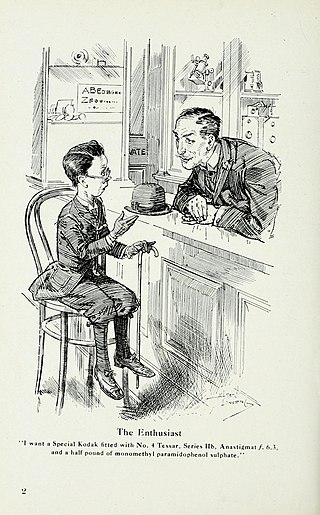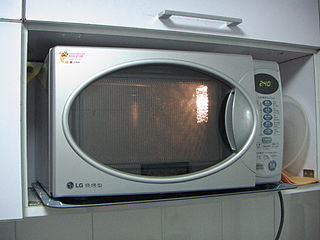
A consumer is a person or a group who intends to order, or use purchased goods, products, or services primarily for personal, social, family, household and similar needs, who is not directly related to entrepreneurial or business activities. The term most commonly refers to a person who purchases goods and services for personal use.

Wholesaling or distributing is the sale of goods or merchandise to retailers; to industrial, commercial, institutional or other professional business users; or to other wholesalers and related subordinated services. In general, it is the sale of goods in bulk to anyone, either a person or an organization, other than the end consumer of that merchandise. Wholesaling is buying goods in bulk quantity, usually directly from the manufacturer or source, at a discounted rate. The retailer then sells the goods to the end consumer at a higher price making a profit.
Caveat emptor is Latin for "Let the buyer beware". It has become a proverb in English. Generally, caveat emptor is the contract law principle that controls the sale of real property after the date of closing, but may also apply to sales of other goods. The phrase caveat emptor and its use as a disclaimer of warranties arises from the fact that buyers typically have less information than the seller about the good or service they are purchasing. This quality of the situation is known as 'information asymmetry'. Defects in the good or service may be hidden from the buyer, and only known to the seller.
The Australian Competition and Consumer Commission (ACCC) is the chief competition regulator of the Government of Australia, located within the Department of the Treasury. It was established in 1995 with the amalgamation of the Australian Trade Practices Commission and the Prices Surveillance Authority to administer the Trade Practices Act 1974, which was renamed the Competition and Consumer Act 2010 on 1 January 2011. The ACCC's mandate is to protect consumer rights and business rights and obligations, to perform industry regulation and price monitoring, and to prevent illegal anti-competitive behaviour.

Consumption is the act of using resources to satisfy current needs and wants. It is seen in contrast to investing, which is spending for acquisition of future income. Consumption is a major concept in economics and is also studied in many other social sciences.

In economics, goods are items that satisfy human wants and provide utility, for example, to a consumer making a purchase of a satisfying product. A common distinction is made between goods which are transferable, and services, which are not transferable.

In common law jurisdictions, an implied warranty is a contract law term for certain assurances that are presumed to be made in the sale of products or real property, due to the circumstances of the sale. These assurances are characterized as warranties regardless of whether the seller has expressly promised them orally or in writing. They include an implied warranty of fitness for a particular purpose, an implied warranty of merchantability for products, implied warranty of workmanlike quality for services, and an implied warranty of habitability for a home.

A final good or consumer good is a final product ready for sale that is used by the consumer to satisfy current wants or needs, unlike an intermediate good, which is used to produce other goods. A microwave oven or a bicycle is a final good.

The Competition and Consumer Act 2010 (CCA) is an Act of the Parliament of Australia. Prior to 1 January 2011, it was known as the Trade Practices Act 1974 (TPA). The Act is the legislative vehicle for competition law in Australia, and seeks to promote competition, fair trading as well as providing protection for consumers. It is administered by the Australian Competition & Consumer Commission (ACCC) and also gives some rights for private action. Schedule 2 of the CCA sets out the Australian Consumer Law (ACL). The Federal Court of Australia has the jurisdiction to determine private and public complaints made in regard to contraventions of the Act.
Trading Standards are the local authority departments with the United Kingdom, formerly known as Weights and Measures, that enforce consumer protection legislation.

The Consumer Credit Act 1974 is an Act of the Parliament of the United Kingdom that significantly reformed the law relating to consumer credit within the United Kingdom.

The Unfair Contract Terms Act 1977 is an act of Parliament of the United Kingdom which regulates contracts by restricting the operation and legality of some contract terms. It extends to nearly all forms of contract and one of its most important functions is limiting the applicability of disclaimers of liability. The terms extend to both actual contract terms and notices that are seen to constitute a contractual obligation.

The Consumer Safety Act (CPSA) was enacted on October 27, 1972, by the United States Congress. The act should not be confused with an earlier Senate Joint Resolution 33 of November 20, 1967, which merely established a temporary National Commission on Product Safety (NCPS), and for only 90-days. Section 4 of the 1972 act established the United States Consumer Product Safety Commission (CPSC) as a permanent independent agency of the United States federal government and defined its basic authority. The act gives CPSC the power to develop safety standards and pursue recalls for products that present unreasonable or substantial risks of injury or death to consumers. It also allows CPSC to ban a product if there is no feasible alternative to an outright ban. CPSC has jurisdiction over more than 15,000 different consumer products. The CPSA excludes from jurisdiction those products that expressly lie in another federal agency's jurisdiction, for example food, drugs, cosmetics, medical devices, tobacco products, firearms and ammunition, motor vehicles, pesticides, aircraft, and boats. These products may fall under the purview of agencies such as the U.S. Food and Drug Administration, the U.S. Bureau of Alcohol, Tobacco, Firearms and Explosives, the U.S. Department of Agriculture, the U.S. Department of Transportation, the U.S. Environment Protection Agency, and the U.S. Federal Aviation Administration.

The Consumer Protection Regulations 2000, SI 2000/2334, implements European Directive 97/7/EC as UK law. They apply to contracts "concluded between a supplier and a consumer under an organised distance sales or services provision scheme run by the supplier who, for the purposes of the contract, makes use of one or more means of distance communication" up to and including the moment the contract is agreed. The legislation provides rights to the consumer and obligations which the seller must fulfill.

The Sale of Goods Act 1979 is an Act of the Parliament of the United Kingdom which regulated English contract law and UK commercial law in respect of goods that are sold and bought. The Act consolidated the original Sale of Goods Act 1893 and subsequent legislation, which in turn had codified and consolidated the law. Since 1979, there have been numerous minor statutory amendments and additions to the 1979 act. It was replaced for some aspects of consumer contracts from 1 October 2015 by the Consumer Rights Act 2015 but remains the primary legislation underpinning business-to-business transactions involving selling or buying goods.
Consumer protection is the practice of safeguarding buyers of goods and services, and the public, against unfair practices in the marketplace. Consumer protection measures are often established by law. Such laws are intended to prevent businesses from engaging in fraud or specified unfair practices to gain an advantage over competitors or to mislead consumers. They may also provide additional protection for the general public which may be impacted by a product even when they are not the direct purchaser or consumer of that product. For example, government regulations may require businesses to disclose detailed information about their products—particularly in areas where public health or safety is an issue, such as with food or automobiles.

A trademark is a type of intellectual property consisting of a recognizable sign, design, or expression that identifies a product or service from a particular source and distinguishes it from others. A trademark owner can be an individual, business organization, or any legal entity. A trademark may be located on a package, a label, a voucher, or on the product itself. Trademarks used to identify services are sometimes called service marks.

The Consumer Protection Act, 1986 (COPRA) was an Act by the Parliament of India elected to protect the interests of consumers in India. It was replaced by the Consumer Protection Act, 2019. It was made for the establishment of consumer councils and other authorities for the settlement of consumer's grievances and matters connected with it. The act was passed in Assembly in October 1986 and came into force on December 24, 1986. The statute on the right was made before this COPRA act 1986.

The Consumer Rights Act 2015 is an act of Parliament of the United Kingdom that consolidates existing consumer protection law legislation and also gives consumers a number of new rights and remedies. Provisions for secondary ticketing and lettings came into force on 27 May 2015, and provisions for alternative dispute resolution (ADR) came into force on 9 July 2015 as per the EU Directive on consumer ADR. Most other provisions came into force on 1 October 2015.
Consumer Protection Act, 2019 is an Act of the Parliament of India. It repeals and replaces the Consumer Protection Act, 1986.











